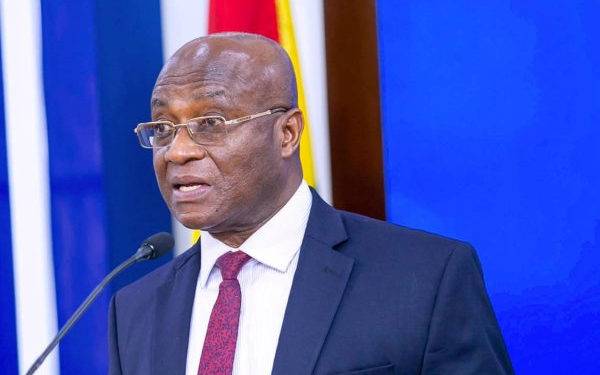The nomination and vetting of three ministerial appointees by President John Dramani Mahama have sparked controversy within Ghana’s Parliament. Former Majority Leader, Osei Kyei-Mensah-Bonsu, has vehemently criticized the process, alleging a breach of parliamentary procedure and questioning the legitimacy of the entire exercise. The nominees in question – Dr. Cassiel Ato Forson for Finance, John Jinapor for Energy, and Dr. Dominic Ayine for Attorney General – were vetted on January 13, 2025, by Parliament’s Appointment Committee. Kyei-Mensah-Bonsu contends that the vetting contravened established parliamentary Standing Orders, specifically highlighting the absence of crucial sectoral committees in the process.
At the core of Kyei-Mensah-Bonsu’s argument is Standing Order 217, which mandates the inclusion of members from relevant subject-matter committees in the Appointment Committee’s deliberations during vetting processes. He pointed out that critical committees, including the Finance Committee and the Constitutional and Legal Affairs Committee, had not yet been constituted at the time of the vetting. This omission, he argues, renders the entire process flawed and potentially undermines the credibility of the appointments. He questioned how the vetting could proceed without the input of these specialized committees whose expertise is deemed essential in assessing the nominees’ suitability for their respective portfolios.
Furthermore, Kyei-Mensah-Bonsu highlighted procedural irregularities regarding the timeline and public notification of the nominations. Established parliamentary protocol dictates a specific timeline for the vetting process, including the public advertisement of the nominees’ names to allow for public scrutiny and potential objections. This process, he asserts, was disregarded in the case of these three nominees. The prescribed procedure allows for a period of public review, typically two weeks, which can be shortened to one week in urgent circumstances. This period enables individuals and organizations to petition Parliament with any concerns or objections they might have regarding the nominees.
The absence of this public notification and the opportunity for potential objections, according to Kyei-Mensah-Bonsu, represents a significant procedural flaw. He questioned the rationale behind this deviation from established procedure, speculating that President Mahama might be attempting to manipulate Parliament through these actions. The lack of transparency and adherence to due process raises concerns about the legitimacy of the appointments and the potential implications for parliamentary oversight and accountability.
Kyei-Mensah-Bonsu’s criticisms highlight a potential conflict between the executive branch’s prerogative to appoint ministers and Parliament’s role in scrutinizing and approving those appointments. The established parliamentary procedures are designed to ensure transparency, accountability, and the participation of relevant stakeholders in the appointment process. Bypassing these procedures, as alleged by Kyei-Mensah-Bonsu, raises questions about the respect for parliamentary authority and the integrity of the appointment process.
The controversy surrounding the vetting of these ministerial nominees underscores the importance of adhering to established parliamentary procedures and ensuring transparency in the appointment of public officials. The allegations of procedural breaches and the potential for executive overreach necessitate a thorough examination of the process to maintain public trust and uphold the principles of good governance. The implications of this controversy could extend beyond these specific appointments, impacting the relationship between the executive and legislative branches and potentially influencing future appointment processes.


